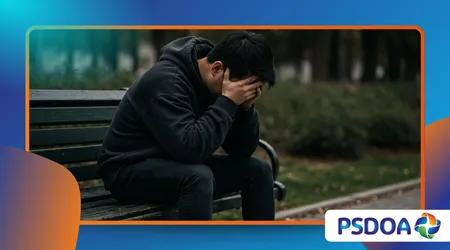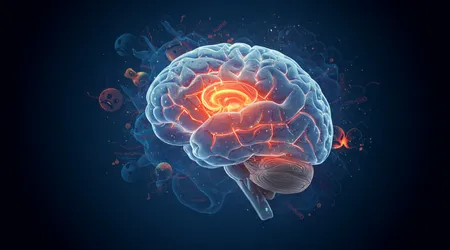The Neuroscience of Ghosting and Emotional Rejection

In today’s fast-paced digital world, the Neuroscience of Ghosting and Emotional Rejection reveals how sudden silence in relationships triggers profound brain responses. People navigate connections more virtually than ever. Yet, this shift amplifies emotional wounds.
Anúncios
Ghosting, that abrupt cutoff without explanation, hits hard. It leaves questions lingering. Why does it sting so deeply? Science points to our wiring for social bonds. Rejection echoes physical pain in the brain.
Imagine scrolling through messages, waiting for a reply that never comes. That void isn’t just emotional it’s neurological. Studies show our brains process it like injury. This phenomenon demands closer examination.
As relationships evolve with apps and texts, understanding these mechanics matters. It helps heal and prevent harm. Dive deeper into how neurons fire amid silence. The insights could change how we connect.
Understanding Ghosting in Modern Relationships
Ghosting means vanishing from someone’s life without a word. It happens in dating, friendships, even jobs. In 2025, with apps dominating, it’s rampant.
Anúncios
People ghost to avoid awkward talks. But it backfires, creating confusion. Victims replay interactions, seeking clues. This cycle intensifies emotional turmoil.
++ Why People Cry at Music They Can’t Understand
Technology enables easy disconnection. One swipe, and contact ends. Yet, human need for closure remains. Ghosting exploits this gap.
Add two more: Social norms shift toward casual ties. Commitment fears fuel ghosting. It reflects broader anxiety in connections. Young adults face it most. Busy lives prioritize self-preservation. But empathy suffers in the process.

The Brain’s Pain Response to Rejection
Rejection activates the anterior cingulate cortex. This area handles physical pain too. Naomi Eisenberger’s 2003 study proved it via fMRI scans.
When excluded, volunteers showed brain activity mirroring hurt. Social pain isn’t metaphorical—it’s real. The Neuroscience of Ghosting and Emotional Rejection builds on this.
Ghosting prolongs this activation. Unlike direct no, silence drags uncertainty. Brains stay alert, scanning for threats.
Also read: The Psychological Toll of Constant Notifications
Add two: Evolution wired us this way. Tribes meant survival. Rejection signaled danger. Modern ghosting taps ancient fears. Hormones spike during rejection. Cortisol floods, stressing the body. It disrupts sleep, focus.
Neurochemical Shifts During Emotional Rejection
Dopamine drops post-ghosting. This reward chemical fuels attachment. Sudden loss creates withdrawal-like symptoms.
Serotonin dips too, linking to depression. Brains crave resolution to restore balance. Without it, mood swings ensue.
Oxytocin, the bonding hormone, plummets. It explains why rejection feels like heartbreak. The Neuroscience of Ghosting and Emotional Rejection highlights these cascades.
Read more: How TikTok Trends Are Rewiring Teen Identity
Add two: Norepinephrine surges, heightening anxiety. Fight-or-flight kicks in. Victims obsess over what went wrong.
Chronic shifts alter neural pathways. Repeated ghosting desensitizes, or worsens sensitivity. Balance key to recovery.
Long-Term Psychological Impacts
Persistent rejection erodes self-esteem. Victims internalize blame. It fosters trust issues in future ties. Anxiety disorders rise from unchecked ghosting. Paranoia creeps in. Social withdrawal becomes a shield.
Depression links strongly. Unresolved pain accumulates. The Neuroscience of Ghosting and Emotional Rejection warns of cumulative effects.
Add two: PTSD-like symptoms emerge in severe cases. Flashbacks to silence haunt. Therapy often needed. Resilience varies by person. Early experiences shape responses. Building it prevents deep scars.
Coping Strategies Backed by Science
Mindfulness eases brain overdrive. Meditation calms the cingulate cortex. Daily practice rebuilds emotional stability. Journaling processes uncertainty. Writing clarifies thoughts. It reduces rumination, per studies.
Social support buffers rejection. Talking releases endorphins. Friends validate feelings. Add two: Exercise boosts dopamine. Runs or yoga counteract drops. Physical health aids mental. Cognitive reframing shifts perspective. View ghosting as their issue. Empowers victims.
The Role of Technology in Amplifying Ghosting
Apps encourage disposability. Endless options devalue connections. Ghosting becomes default exit.
Notifications heighten anticipation. Silence amplifies absence. The Neuroscience of Ghosting and Emotional Rejection examines this digital twist.
Algorithms match superficially. Deeper bonds rare. Rejection feels impersonal yet piercing. Add two: Social media stalking prolongs pain.
Seeing ex thrive hurts. Limits needed. AI dating coaches emerge in 2025. They advise communication. Could reduce ghosting rates.
Recent Research Findings

A 2025 study by Alessia Telari in Computers in Human Behavior simulated ghosting. It showed slower, prolonged negative responses versus direct rejection.
Participants chatted daily, then got ghosted or rejected. Closeness dropped sharply. Ghosting lingered longer. This causal evidence is key. Past research relied on memories. Now, real-time data confirms harm.
Add two: Another insight: Uncertainty drives distress. No closure hinders coping. Brains crave answers. Gender didn’t factor much. Effects universal. Highlights need for awareness.
One statistic: Forbes Health 2025 survey found 76% of daters impacted by ghosting. It underscores prevalence.
Comparative Analysis of Ghosting vs. Rejection
Ghosting and rejection share pain pathways. But differences matter. Here’s a table based on Telari’s 2025 research.
| Aspect | Ghosting | Direct Rejection |
|---|---|---|
| Emotional Onset | Slow build-up | Immediate spike |
| Duration | Prolonged distress | Quicker resolution |
| Uncertainty Level | High | Low |
| Attachment Lingering | Strong | Weaker |
| Recovery Trajectory | Gradual decline | Sharp drop then rise |
This table illustrates distinct impacts. The Neuroscience of Ghosting and Emotional Rejection benefits from such comparisons.
Practical Examples and Analogies
Consider Sarah, a marketing exec. She dated Alex for weeks. Texts flowed, then nada. Brain scanned threats, sleep lost.
Or Mike, ghosted after job interview. He replayed emails. Felt unworthy. Examples show real-life toll. Analogy: Ghosting like a cliffhanger movie. No end, mind loops. Rejection provides credits roll.
Why endure this silence when words heal? Rhetorical question: Isn’t communication the bridge we all need?
Add two: In friendships, Lisa vanished on her pal. Lingering doubt eroded trust elsewhere. Workplace ghosting: Boss ignores ideas. Employee disengages. Patterns repeat across contexts.
Cultural Shifts and Future Outlook
2025 sees anti-ghosting campaigns. Apps prompt explanations. Reduces incidence.
Cultural stigma grows. Openness valued. The Neuroscience of Ghosting and Emotional Rejection informs policies.
Education key. Schools teach emotional literacy. Prevents cycles. Add two: Global views differ. Some cultures frown more. Western individualism fuels it. Future tech: VR simulations train empathy. Could rewire responses.
Conclusion
Reflecting on the Neuroscience of Ghosting and Emotional Rejection, it’s clear silence wounds deeply. Brains evolved for connection, not abrupt ends.
Armed with science, we choose better. Prioritize kindness in partings. Healing starts with awareness. Ghosting’s rise mirrors tech’s pace. But humanity prevails through understanding. Foster bonds that endure.
In 2025, let’s redefine rejection. Turn pain into growth. The Neuroscience of Ghosting and Emotional Rejection guides us forward. Embrace dialogue. It mends neural rifts. Future connections brighter for it.
Dúvidas Frequentes
What causes the brain to react so strongly to ghosting?
Rejection taps survival instincts. Brains see it as threat, activating pain centers.
How can I recover from being ghosted?
Seek support, exercise, reframe thoughts. Time and self-care heal.
Is ghosting more common now?
Yes, with digital tools. 76% affected, per recent surveys.
Does everyone experience rejection the same?
No, resilience varies. Past experiences influence intensity.
Can ghosting lead to mental health issues?
Yes, prolonged cases link to anxiety, depression. Professional help advised.
